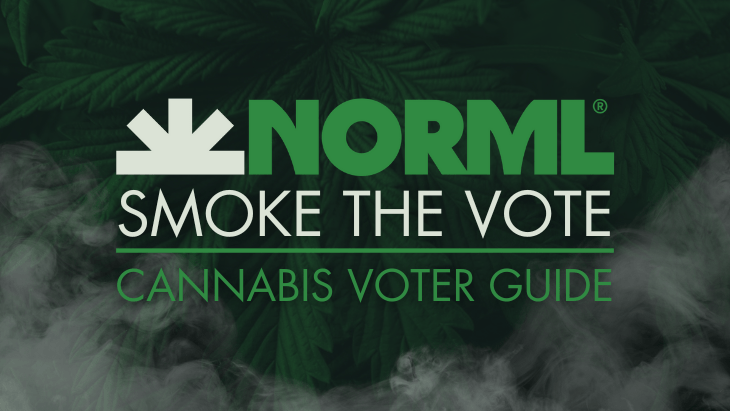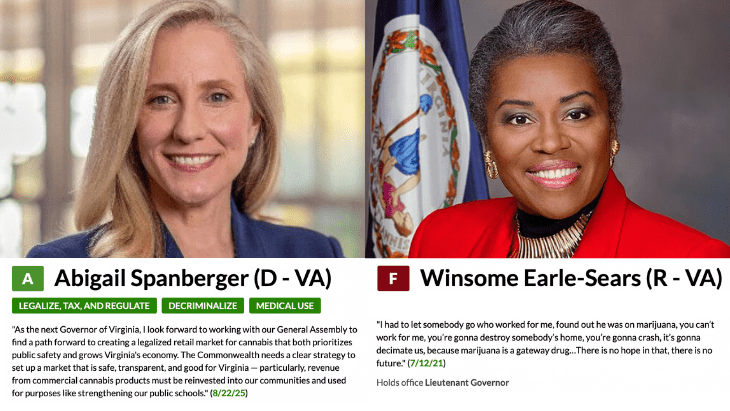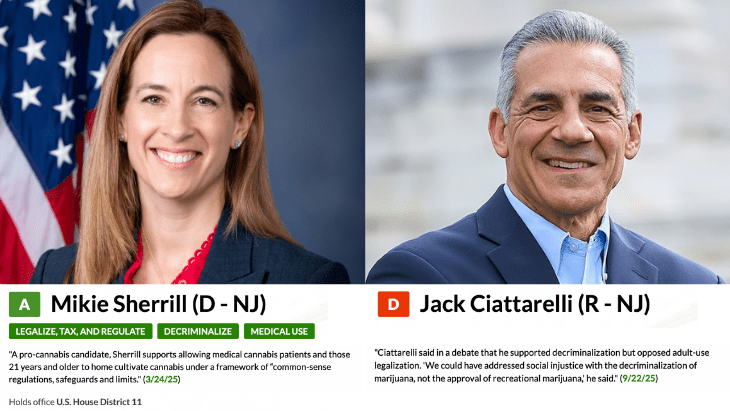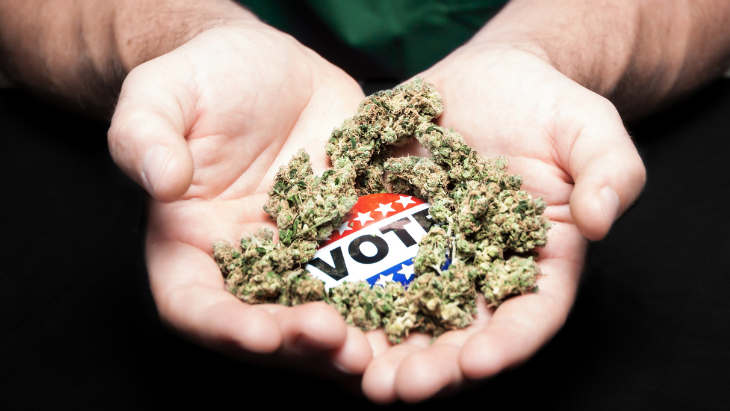On Tuesday, November 4, 2025, voters in multiple states will head to the polls. The outcomes of these elections will have major implications for cannabis policy on the East Coast. NORML’s cannabis voter guide, Smoke the Vote, provides summaries of cannabis-related policy positions for candidates in Virginia’s and New Jersey’s general elections, and for candidates running in special elections in Minnesota, Mississippi, New Hampshire, New York, South Carolina, Texas, and Washington.

In Virginia, personal possession and home cultivation of cannabis have been legal since 2021. Nonetheless, retail sales remain prohibited because the current administration refuses to adopt licensing legislation and seize control of the Commonwealth’s marijuana market from unregulated operators. The results of this election will decide whether the state moves forward with a regulated adult-use marketplace that delivers consumer protections, tax revenue, and justice reform, or whether it keeps cannabis access squarely in the hands of the illicit market.
“This election will ultimately determine whether Virginians finally gain access to safe, tested, and regulated adult-use cannabis dispensaries or if they will have to wait until 2030 to revisit the issue,” said NORML’s development director, JM Pedini. Pedini, who also serves as the executive director of the state chapter, Virginia NORML, noted that while the state’s Cannabis Oversight Commission has spent months preparing recommendations to guide retail sales “that work can only move forward under an administration willing to prioritize public safety and consumer protection by enacting a retail framework.”
Pedini emphasized that Democratic candidate for governor Abigail Spanberger has expressed a willingness to sign legislation establishing retail cannabis sales, stating: “As the next Governor of Virginia, I look forward to working with our General Assembly to find a path forward to creating a legalized retail market for cannabis that both prioritizes public safety and grows Virginia’s economy. The Commonwealth needs a clear strategy to set up a market that is safe, transparent, and good for Virginia — particularly, revenue from commercial cannabis products must be reinvested into our communities and used for purposes like strengthening our public schools.”

By contrast, her opponent, current lieutenant governor Winsome Earle-Sears, claims that marijuana is a gateway drug and that legalization is “decimating communities.” Earle-Sears strongly opposes regulating adult-use retail sales, a stance Pedini described as “a policy failure that prolongs unregulated sales, deprives the Commonwealth of revenue, and leaves consumers without essential safeguards.”
Voters in New Jersey will also choose between cannabis policy progress or maintaining the status quo. The Garden State also legalized adult-use cannabis in 2021, but the state still faces significant shortcomings: prohibitions on home cultivation, high prices, and uneven consumer access. Democratic candidate Mikie Sherrill has voiced support for expanding New Jersey’s adult-use cannabis program, including allowing home cultivation and improving consumer access, safety, and affordability. On the other hand, Republican candidate Jack Ciattarelli, who has long expressed skepticism toward cannabis legalization, indicated he would maintain the current framework, opposing both personal cultivation for adult-use consumers and further market expansion. For consumers, the contrast is clear: Sherrill’s approach would strengthen legal access, reduce costs, and give responsible adults more freedom and protection, while Ciattarelli’s would keep the existing limits in place, leaving many of the state’s affordability and availability problems unresolved.

Pedini stressed that the stakes are high in both states because the direction of cannabis policy depends on executive leadership. “Elections decide whether cannabis consumers are treated as constituents whose rights and safety matter or as political afterthoughts,” they said. “For those who care about cannabis policy reform, this election is not an event to be watched from the sidelines; it is a turning point.”
Related
Medical Disclaimer:
The information provided in these blog posts is intended for general informational and educational purposes only. It is not a substitute for professional medical advice, diagnosis, or treatment. Always seek the advice of your physician or other qualified healthcare provider with any questions you may have regarding a medical condition. The use of any information provided in these blog posts is solely at your own risk. The authors and the website do not recommend or endorse any specific products, treatments, or procedures mentioned. Reliance on any information in these blog posts is solely at your own discretion.






